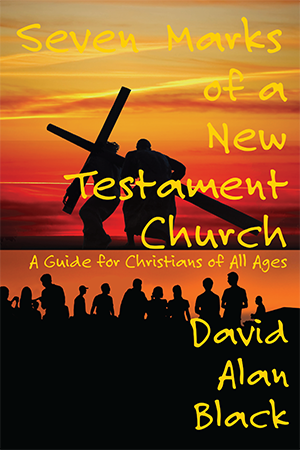Hebrews 4:12-13: God’s Word is Alive and Active
Yes, but what does it do?
I sometimes think that this passage should be our key passage for the inspiration of the Bible rather than 2 Timothy 3:16. After opening with the wonderful passage in Hebrews 1:1-4, and telling us how God has communicated in so many ways, he begins to close the circle on the Word of God, and the powerful work that it does. The word came in many ways at many different times, but now it has come through a Son, Jesus Christ. This word challenges us to its quality and nature (Hebrews 2:1-4). God not only has information for us; he has a plan. We don’t only need to know the contents; we need to let our lives reflect that content. When we “consider the apostle and high priest of our confession” it is not so that we can polish up our doctrinal statements, it is so that we will be faithful to our confession.
Hebrews 4:12-13 brings a close to this part of the argument and launches us into a new phase as we discuss priesthood. To catch the emphasis, let me translate very literally: “Living is the Word of God and active/powerful . . .” There has been some debate over whether our author here is talking about Jesus (John 1:1-3) as the word, or is talking about the scriptures. Scholarly opinion centers on the second. But I think both are too narrow. I think he has seen the marvelous ways in which God, through his word, intrudes himself into our lives. He sees the benefits that will result from responding to this activity and makes a call for us to be faithful to that call.
That’s why the next section of this passage talks about knowledge. God’s word not only enlightens us and informs us, it discovers all that there is to be known about us. You can get a picture almost of dissection, but that wasn’t on our author’s mind. He was probably looking more at a combat metaphor of the skilled swordsman whose sword finds the precise mark. But in this case the purpose is not to wound, but to lay it all bare before the eyes of God. All creation is open to him because, after all, he is the creator of all creation. It’s all laid bare.
The word of God is both informative and formative. It provides us with knowledge of God. It is God, knowing all there is to know about us. It is the motivator of our actions and the empowerment to do them.
By the breath of his mouth, all their host! — Psalm 33:6
But then perhaps 2 Timothy 3:16 is not so far off after all. In fact, as I read it, I see much the same thing. “Every scripture is God-breathed, and is useful for teaching, for rebuke, for correction (straightening out), and for instruction in righteousness.” Isn’t that pretty much what this is saying? I find that this verse gets quoted more often to tell us what the content of scripture is. The Greek term “theopneustos” is analyzed to tell us how inspiration works, and what it must do to the words of scripture. In fact, the Revised English Bible translates, “All inspired scripture has its use . . .” and many people have told me that this takes all meaning from the verse. Not at all! What Paul is getting at here is how to put the scripture to practical use. The word is active, and we need to get active with the word. We need to let the word change us.
One particularly important point I like to emphasize in Bible study is the need to let the word correct you personally first. It is so easy to read the Bible, or hear the word in any context, and find all of the things that other people need to hear. There is correction there for my wife, for my children, for my pastor, for my Sunday School class. But the real question is this: When that sword cut to the heart of the matter, what did it find?
That should be the focus of our Bible study!


